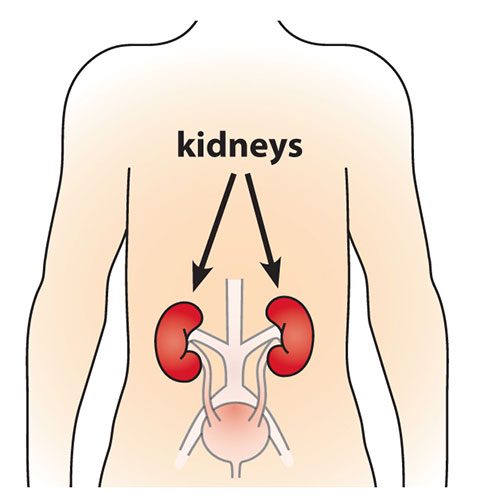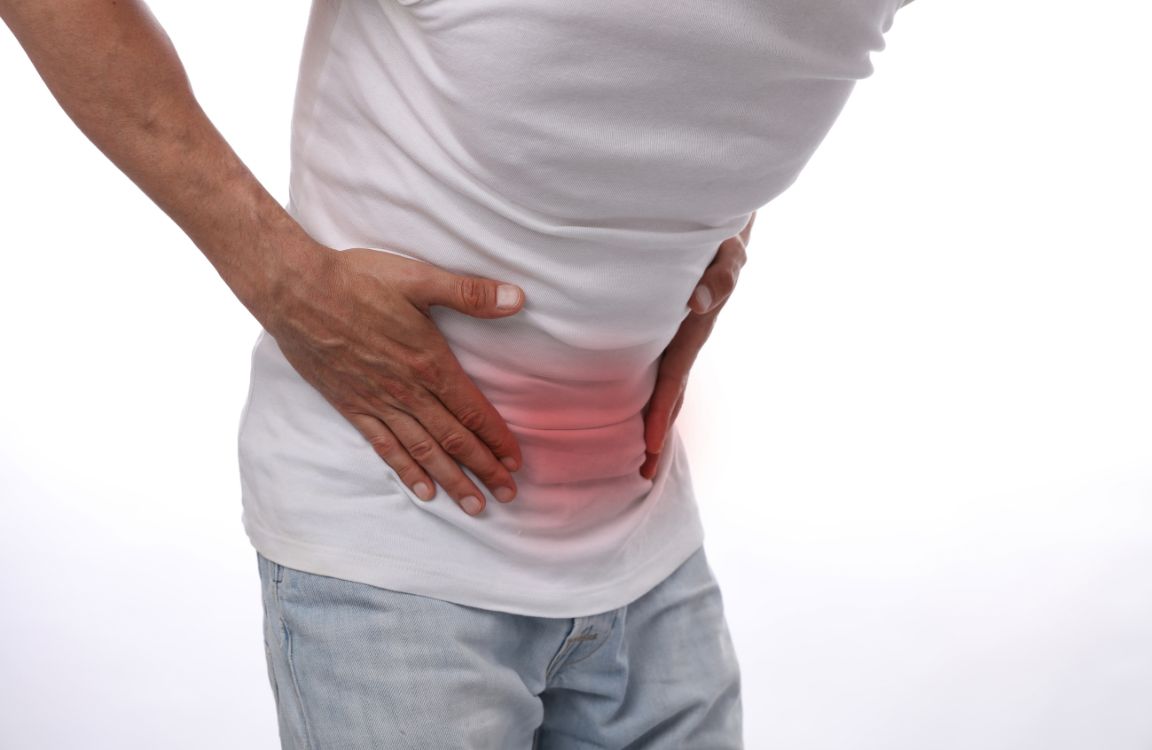According to a report by National Center for Biotechnology Information (NCBI), over 12% of the total population in India suffers from the problem of kidney stones.
The most common myth that I’ve heard from people is that ‘if you eat fruits and vegetables that contain seeds then you get kidney stones’. This is false. To clear all your doubts, queries, and myths regarding kidney stones, I am writing to you all today.
I was interviewed by the VNM team for their series ‘World Health Day’ where I shared my thoughts about kidney stones.
This blog shares some nuggets from my experience of the last 25+ years working as a urologist. I hope it will clarify most of your doubts and/or questions about ‘kidney stones’.
Causes of kidney stones
Kidney stones are also known as renal calculi. It can form when certain substances in the urine become highly concentrated, leading to the crystallization and aggregation of these materials.
The most common types of kidney stones are:
Calcium Stones:
These are the most prevalent type and are usually composed of calcium oxalate or calcium phosphate. They form when there is an excessive amount of calcium or oxalate in the urine.
Uric Acid Stones:
These stones form when there is an elevated level of uric acid in the urine. Uric acid is a byproduct of the breakdown of purines found in certain foods.
Struvite Stones:
Struvite stones develop in response to urinary tract infections. These stones can grow rapidly and become quite large.
Cystine Stones:
Cystine stones are rare and occur in individuals with a hereditary disorder called cystinuria, which leads to the excretion of high levels of cystine (an amino acid) in the urine.
Certain risk factors increase the likelihood of developing kidney stones, such as a family history of kidney stones, dehydration, obesity, certain medical conditions (e.g., gout), and a diet high in sodium, protein, or oxalate-rich foods.
Symptoms of kidney stones
The symptoms of kidney stones can vary depending on their size and location within the urinary tract. Common signs and symptoms include:
Severe Pain
One of the most distinctive symptoms is intense pain in the back, side, or lower abdomen. The pain may come in waves and can be excruciating.
Hematuria
Blood in the urine is another common symptom. The urine may appear pink, red, or brownish.
Frequent Urination
People with kidney stones may feel the urge to urinate more frequently than usual, and the amount of urine passed might be smaller than normal.
Nausea and Vomiting
Kidney stone episodes can cause nausea and vomiting, often as a result of severe pain.
Cloudy or Foul-smelling Urine
The presence of kidney stones can cause changes in the appearance and odour of urine.
Urinary Tract Infections
In some cases, kidney stones can lead to urinary tract infections, which may present with symptoms like fever and chills.
It's essential to seek medical attention if you experience any of these symptoms or suspect you may have kidney stones.
Treatment options
The approach to treating kidney stones depends on various factors, including the size and type of stone, the severity of symptoms, and the individual's overall health. Common treatment options include the following.
Pain Management
For small stones that can pass on their own, pain relief medications may be prescribed to manage discomfort during the process.
Drinking Fluids
Increasing fluid intake helps flush out smaller stones and prevents new ones from forming. Water is usually the best choice.
Medications
Medications can help dissolve certain types of kidney stones or prevent them from growing larger. Uric acid stones can sometimes be treated with medications that reduce uric acid levels.
Extracorporeal Shock Wave Lithotripsy (ESWL)
This non-invasive procedure uses shock waves to break large stones into smaller pieces, making them easier to pass through the urinary tract.
Ureteroscopy
A thin, flexible tube with a camera is inserted into the urethra and bladder to reach the stone. The stone can then be removed or broken into smaller fragments using laser energy.
Percutaneous Nephrolithotomy (PCNL):
This procedure involves making a small incision in the back to access and remove larger kidney stones.
Surgical Intervention
In rare cases where other methods are not feasible or effective, open surgery may be required to remove kidney stones.
After treatment, lifestyle changes, such as adopting a balanced diet, maintaining proper hydration, and taking prescribed medications, can help prevent the recurrence of kidney stones. Regular follow-up with a healthcare provider is essential to monitor kidney health and prevent future complications.
Also, note just because you don't experience pain doesn't imply the absence of kidney stones. Occasionally, we recommend surgery, but patients may choose to delay it.
In the interim, the pain subsides, only to resurface later. By then, the kidney may have already suffered damage, potentially necessitating its removal. Therefore, it is crucial to take prompt action under the supervision of a urologist.
Can kidney stones be cleared by medicine?
In 80% of the cases, the operation is not needed and with the help of medicines and water, the kidney stones get flushed out of the body.
However, if a kidney stone is big, causing damage to the kidney or causing any infection then it needs to be removed surgically.
In earlier times whenever people faced the problem of kidney stones they used to be kept on the drip so that the stone gets flushed out of the body.
But it is not advisable to do so because if there is some infection in the kidney then it creates unnecessary pressure on the kidneys to perform and can make the matters worse.
Why should we go to a urologist for kidney stone removal?
To become a urologist we need to study for 12 more years after completing 12th standard. So we are experts in that category. Just as you go to a cardiologist for heart-related issues, similarly you must visit urologists for kidney stone problems.
What are the surgical options for kidney stones?
There are many options and one category does not fit all.
The type of surgical procedure depends on various factors such as:
- Comorbidity conditions of the patient
- Age of patients
- Size of the kidney stone
- Location of the kidney stone
- Patient demographics

Among the various types of surgeries that can be done, we generally recommend Lithotripsy Treatment and Retrograde IntraRenal Surgery (R.I.R.S.).
Is the operation done in Vans for removing kidney stones using the laser removal technique proper?
No. Normally people feel that the operations in which no incisions are made are done by using a laser. People feel that they can go to a specialized van and through laser get the kidney stone removed. However, it is not so. Laser is an energy source that is used to crush the kidney stone.
The way to crush kidney stones without incisions is lithotripsy. So I would suggest that do not go to the medical vans or quacks who tell you that they can remove your kidney stones by laser. It must be done under the observation of a skilled urologist.
How to choose a hospital which can provide treatment for kidney stones?
Today, you can see that even doctors who are not urologists are doing operations for removing kidney stones. In such a scenario, you should look out for NABH-certified hospitals.
Generally, NABH-certified hospitals have all options available for treatment and they customize the operation as per the patient’s need.
The NABH certificate guarantees two things:
- Patient’s safety
- Quality of care
NABH is an internationally recognized certification that ensures that a patient is given the right treatment. Our hospital has this certification.
This is not so with other hospitals. They might be using just one technique for the operation which may or may not suit the needs of the patient or cause longer healing time. It creates treatment availability bias.
How to deal with a reoccurrence of kidney stones?
The reoccurrence of kidney stones is very common. There is a 50% chance that it will reoccur. There is no medicine to stop its recurrence.

But it has been scientifically proven that if you follow the below-mentioned 4 steps then chances of recurrence reduce to a great extent.
- Drink lots of fluids. Fluids intake should be that much which causes you to urinate at least 2.5 to 3 liters of urine in 24 hours.
- Avoid taking additional salt in your diet.
- Avoid eating fast food
- If you are fond of a non-vegetarian diet then you should restrict it to once a week.
Is it true that we should avoid fruits and vegetables that contain seeds?
Many people feel that eating things like tomatoes, or vegetables like cabbage is harmful. However, only the people who have metabolic syndrome, need to take care of it.
God has created a perfect digestive system. It is not that whatever we eat, directly goes to the urinary tract to form stones.
So this is a myth that eating certain vegetables with seeds can cause kidney stones or urine stones.
Can certain foods cause kidney stones?
Food alone cannot lead to the formation of kidney stones. For example, M.S. Dhoni drinks 5 litres of milk every day in such cases the amount of calcium may increase in your body and lead to kidney stones.
But normal people do not consume milk or any Calcium rich product in that quantity. So drinking 2 glasses of milk a day will not lead to kidney stones. Some studies indicate that even the absence of Calcium in diet can lead to kidney stones.
You should be careful not to take anything in excess. According to me, that’s key to having a kidney stone-friendly diet.
National Kidney Foundation recommends the following:-
Stay hydrated:
Consume 2-3 quarts of fluids daily, which can include water, coffee, and lemonade (except for grapefruit juice and soda). This helps maintain a healthy urine volume of at least 2.5 litres per day and reduces urine concentration.
Watch your oxalate intake:
Limit foods rich in oxalates, such as spinach, berries, chocolate, wheat bran, nuts, beets, tea, and rhubarb, by eliminating them from your diet.
Get enough dietary calcium:
Consume three servings of dairy per day with meals to reduce the risk of calcium stone formation.
Be cautious with calcium supplements:
Consult your physician and a registered kidney dietitian before taking calcium supplements, as they should be personalized to your needs.
Moderate protein consumption:
Avoid excessive protein intake, as it can lead to increased calcium excretion by the kidneys and potentially contribute to stone formation.
Limit salt intake:
Reducing sodium in your diet not only helps prevent stone development but also aids in controlling blood pressure.
Be mindful of vitamin C supplements:
Stick to the recommended daily dose of 60mg of vitamin C based on the US Dietary Reference Intake. Taking excessive amounts, 1000mg/day or more, may result in higher oxalate levels in the body.
However, if you are facing any difficulties or any more questions then you can surely approach me or consult me. I’ll be happy to guide you.



